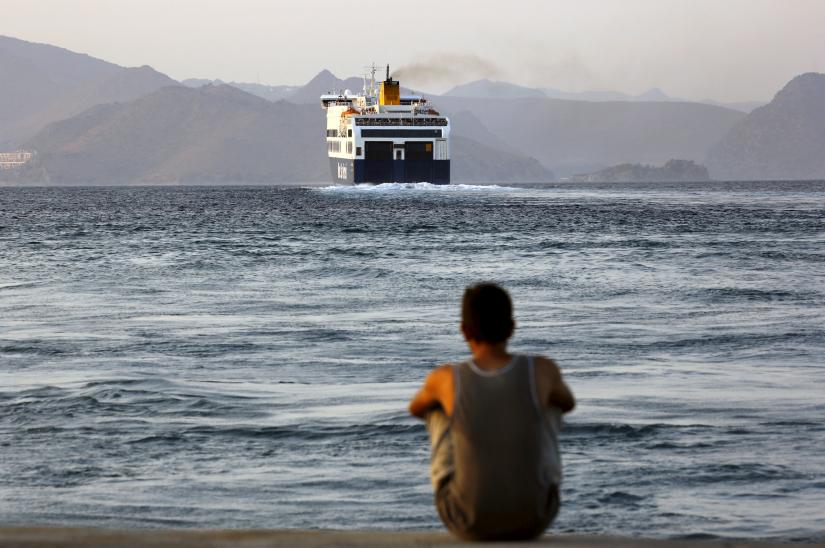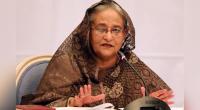 In the last seven years, more than 4,500 cases on human trafficking have been lodged in the country. Though the law states that charges for such cases have to be formed within 90 days and trial completed within 180 days, many are stuck in legal complications.
In the last seven years, more than 4,500 cases on human trafficking have been lodged in the country. Though the law states that charges for such cases have to be formed within 90 days and trial completed within 180 days, many are stuck in legal complications.
Due to lack of evidence, compromise between plaintiff and defendant plus non-cooperation of the plaintiff, cases cannot move forward.
As per the information from supreme-court, since the introduction of the human trafficking law, there have been 4668 cases, of which, 245 were settled, 4106 are under trial, 317 were transferred to court and seven suspended.
The most cases are from Dhaka, Cox’s Bazaar, Jessore, Barishal, Narsingdi and Habiganj.
The first human trafficking related case was lodged on Apr 7, 2012, in Naogaon. A returnee from Egypt called Babu lodged the case, the accused were arrested and then went free on bail. The trial did not move an inch in seven years.
Police report says that a manpower agency called Rapid Overseas sent workers to Egypt through the Chattogram airport but the men were hoodwinked and their possessions taken away.
After staying at an Egyptian jail they came back and one victim, Babu, filed a case. Based on that, the police started investigation and though the main two accused were arrested they secured bail and came out.
Advocate Kabir Uddin Bhuiyan of women and children repression prevention court of Mymensingh, said: “in 80 per cent of cases, witnesses do not come to court which delays the trial process. In many cases, an out of court settlement is done with the victim getting financial compensation from the criminal.”
Ilias, who was trafficked to Iran, lodged a case at the CMM court on 3 November, 2013 under the human trafficking law.
Ilias says: “Gulshan thana was asked to investigate the matter and I was called to the thana several times to settle for a compromise; at one point, I tore the papers in frustration.”
Recently, head of US human trafficking monitoring and tackling office, John Cotton Richmond, came to Dhaka and he said: “To ensure justice, the cases need to be settled swiftly, perpetrators have to be punished and the respect of the victims restored.”
A leading member of the home ministry contends that human trafficking cases cannot progress due to the non-cooperation of the plaintiffs.
There are too many instances where those who lodge cases enter into a financial understanding with the accused and then show a reluctance to carry on with the trial, added the official.
In June, a decision has been taken at the home ministry, under which, withdrawal of cases will be permitted after talking to the plaintiffs.
 National
National
40983 hour(s) 14 minute(s) ago ;
Morning 10:09 ; Friday ; Jun 20, 2025
Human trafficking cases stymied by tendency to compromise
Send
Saddif Ovee
Published : 02:00, Sep 02, 2019 | Updated : 02:00, Sep 02, 2019
Published : 02:00, Sep 02, 2019 | Updated : 02:00, Sep 02, 2019
0 ...0 ...
/tf/
Topics: Top StoriesExclusive
- KOICA donates medical supplies to BSMMU
- 5 more flights to take back British nationals to London
- Covid19: Rajarbagh, Mohammadpur worst affected
- Momen joins UN solidarity song over COVID-19 combat
- Covid-19: OIC to hold special meeting
- WFP begins food distribution in Cox’s Bazar
- WFP begins food distribution in Cox’s Bazar
- 290 return home to Australia
- Third charter flight for US citizens to return home
- Dhaka proposes to postpone D8 Summit
Unauthorized use of news, image, information, etc published by Bangla Tribune is punishable by copyright law. Appropriate legal steps will be taken by the management against any person or body that infringes those laws.
Bangla Tribune is one of the most revered online newspapers in Bangladesh, due to its reputation of neutral coverage and incisive analysis.
F R Tower, 8/C Panthapath, Shukrabad, Dhaka-1207 | Phone: 58151324; 58151326, Fax: 58151329 | Mob: 01730794527, 01730794528


